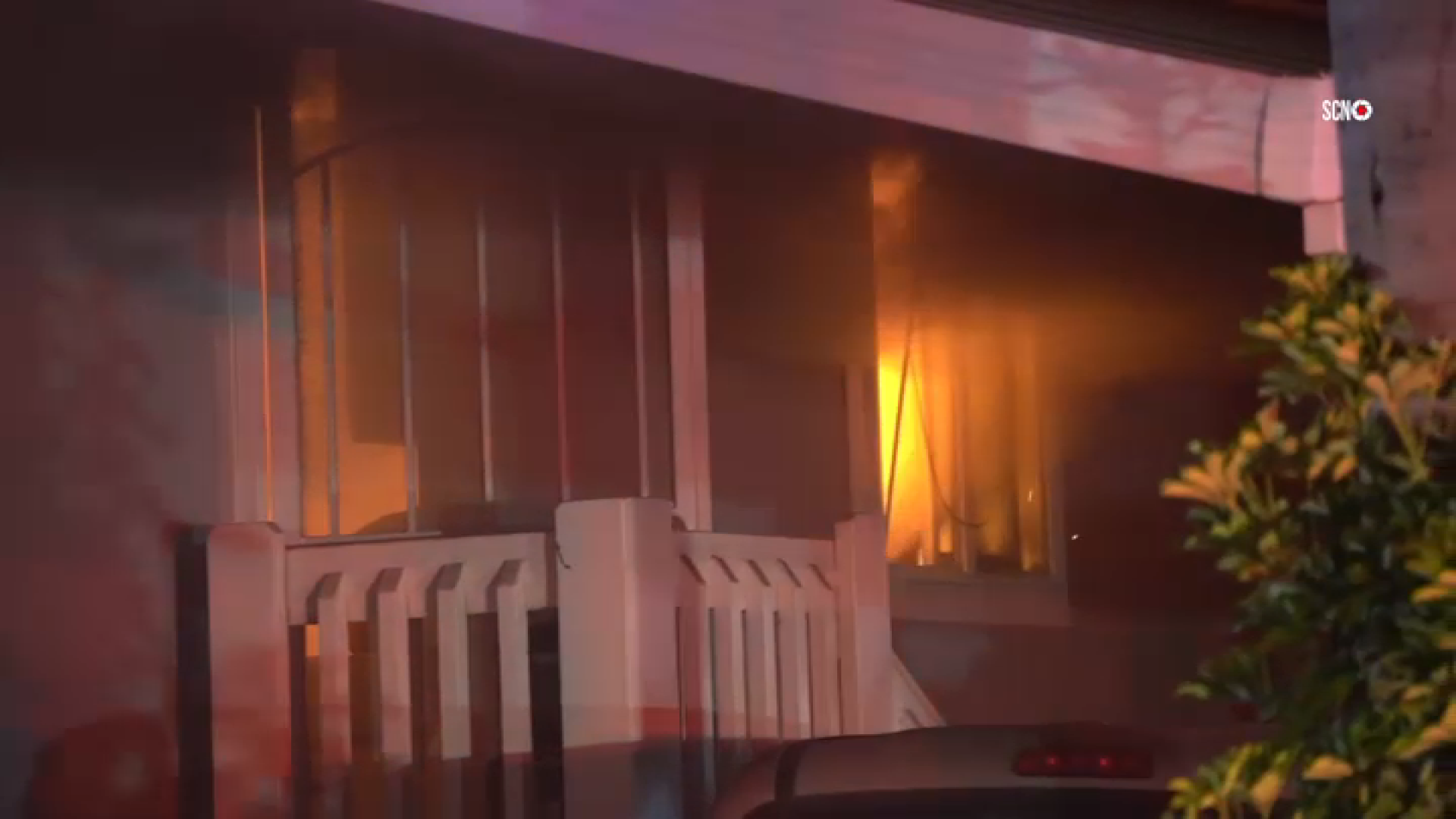Homeless San Diegans who have been housed at the San Diego Convention Center for about a year will be relocated to other shelters this week as an operation to prevent the spread of COVID-19 among the vulnerable population comes to an end.
The about 500 homeless individuals who are currently staying at the convention center shelter will be relocated to two shelters operated by the Alpha Project in the East Village and one shelter at Golden Hall near City Hall and operated by Father Joe's Villages, San Diego Mayor Todd Gloria announced said.
"I made a commitment that we would not return these folks to Harbor Drive and wish them well but instead we would find them another opportunity to be housed sustainably and suitably and that we are making good on," Gloria said.
Some will also be transferred to open beds at Father Joe's Villages' main shelter and PATH's interim shelter.
Get top local stories in San Diego delivered to you every morning. Sign up for NBC San Diego's News Headlines newsletter.
The Operation Shelter to Home program, which costs the city about $5 million a month, according to city documents, was scheduled to wind down in December 2020 but the San Diego City Council voted to extend the program through March.
The decision to stop using the convention center to house homeless individuals came months before the city of San Diego opened up the convention center to the federal government for the shelter of migrant children, according to the city. The convention center will be used to house migrants through July and will be operated by the federal government and the county.
Local
The project launched on April 1, 2020, when it moved already sheltered individuals into the convention center to allow for proper physical distancing and created a centralized staff to provide resources to individuals in their care.
San Diego city and county teamed up with the San Diego Convention Center Corporation and Regional Task Force on the Homeless to create the program.
Alpha Project President Bob McElroy said the success of the program was due to the close coordination of several homeless agencies, the city and the county.
"The blessing here is we're going to transition that same momentum we had here -- that close cooperation and coordination between all the agencies -- follow us onto the bridge shelters to keep that ball rolling and to keep housing people, keep allowing people to access services," McElroy said.
Officials said the program had served more than 4,000 people and connected more than 1,200 individuals and 43 families to long-term housing. It also allowed the city to vaccinate individuals at the convention center, Gloria said.
"The number of individuals that came here, as the mayor pointed out, that have been permanently housed is an incredible feat. And for those that haven't, we have to come back and do more. And for those that are on the streets, we have to come back and do more," San Diego County Supervisor Nathan Fletcher said.
But Mayor Gloria said he knows there is much more to do for homeless San Diegans.
"We continue to have a significant homeless problem in this community. We all know that," Gloria said. "But what we learned here in terms of single point of entry, coordinated intake, working to identify people's needs and connecting them to appropriate housing solutions is how we've been able to successfully get more than 1,300 people off the street for good."
San Diego homelessness crisis was brought back into the forefront this month when a driver suspected of being under the influence crashed into a congregation of tents under a bridge near San Diego City College, a known area where the homeless seek refuge from harsh conditions at night. Three people were killed and nine were injured.
Homeless advocates said the deadly crash was preventable if there were more resources for those without shelter. They argued that the city has been underutilizing pandemic-specific resources that could have provided shelter to these individuals, like hotel rooms that are meant to isolate individuals who are at risk of contracting COVID-19.
They also argued that the city needs to do a better job of providing resources for high-risk individuals, to stop ticketing unhoused people, and to stop adding conditions to services.
A spokesperson for the city said Mayor Todd Gloria shares the same goal and will continue to "adopt a person-centered approach to homelessness."
At a press conference following the crash, the mayor urged homeless individuals to accept the help already being offered.
“We can and we will provide shelter to those who need it,” he said. “I want to speak to those without homes in our city – accept the help we are offering. We have beds, we have services, we can connect you with family – and offer you a safe place to stay.”



